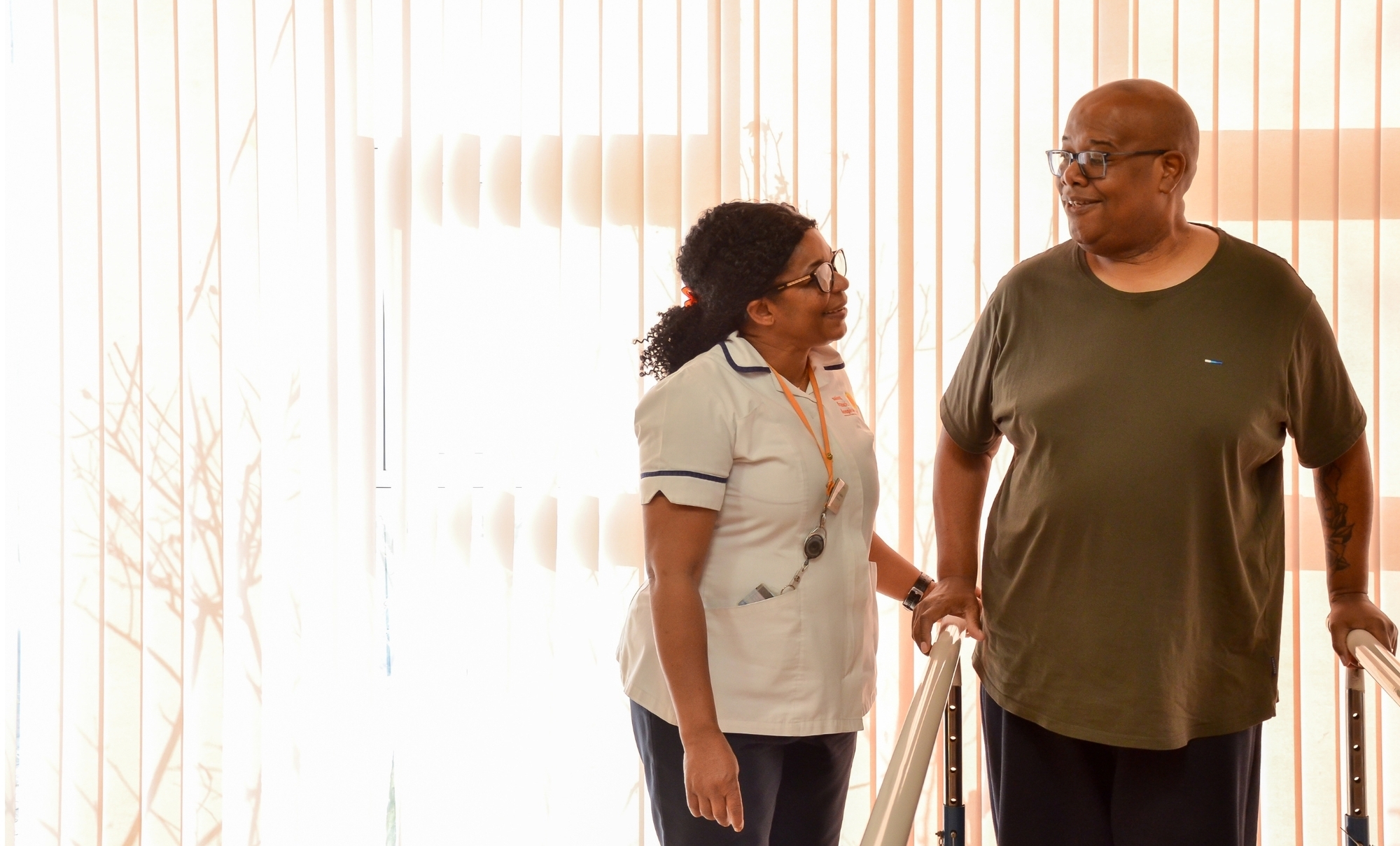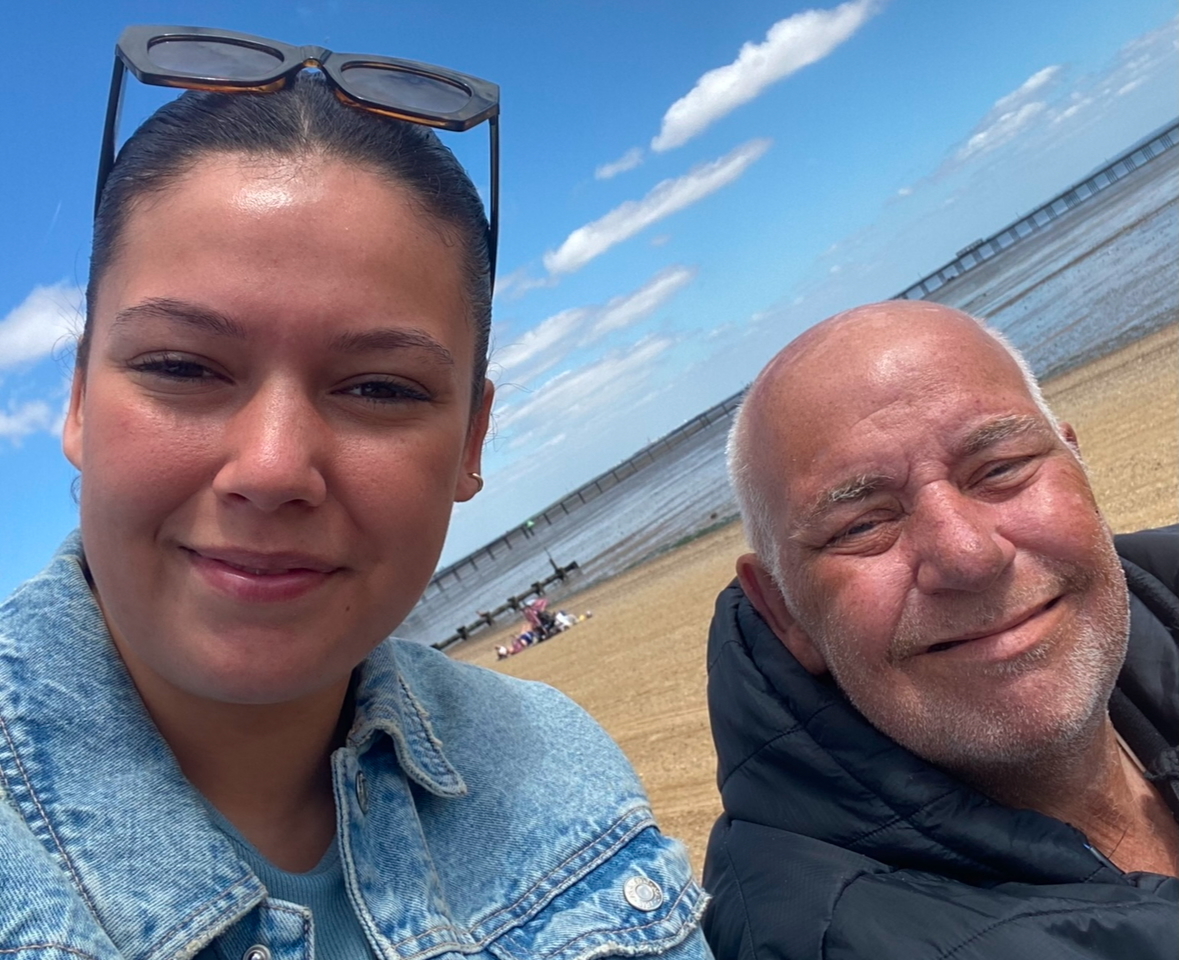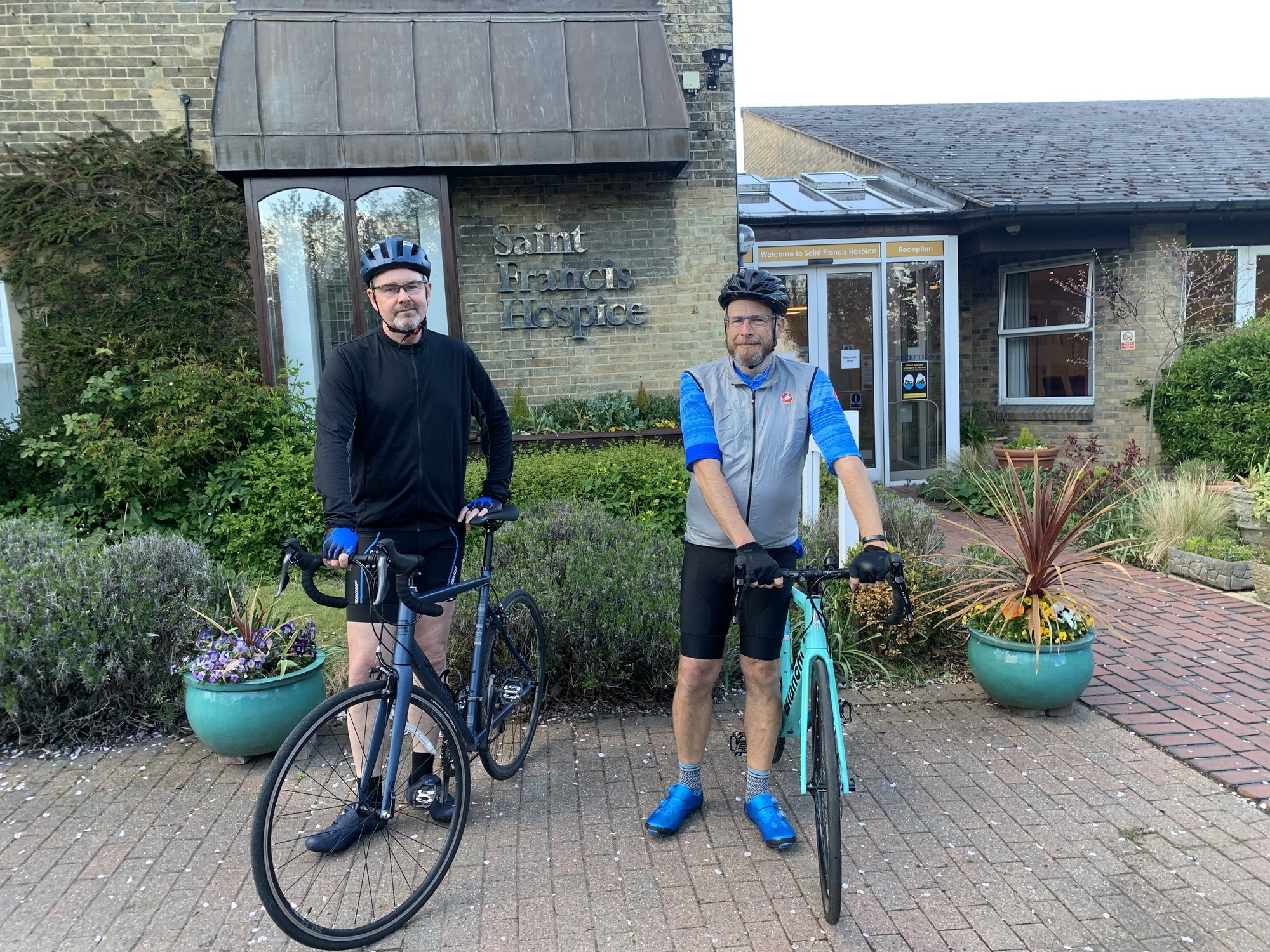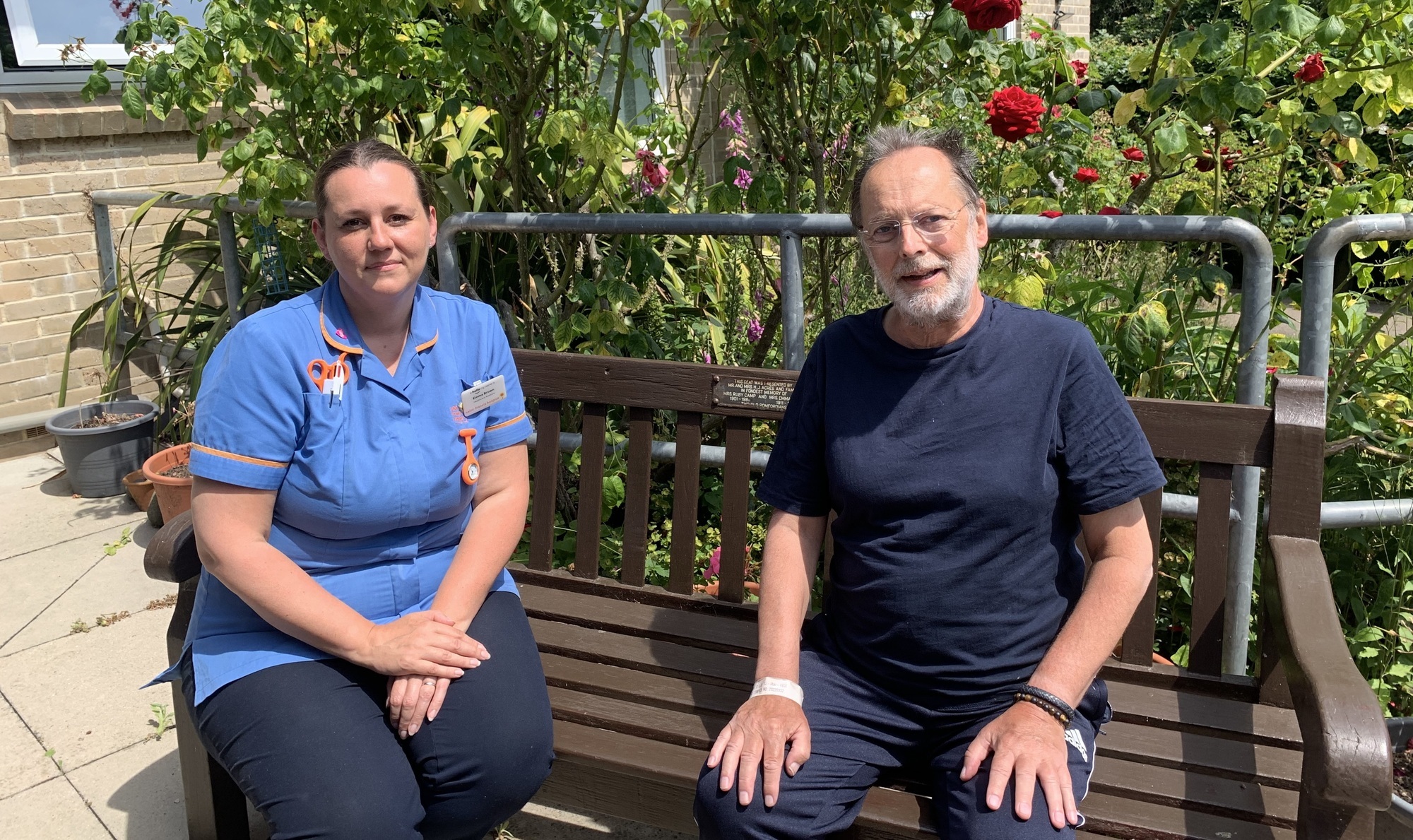The Hospice isn't a place to die, its a place to live
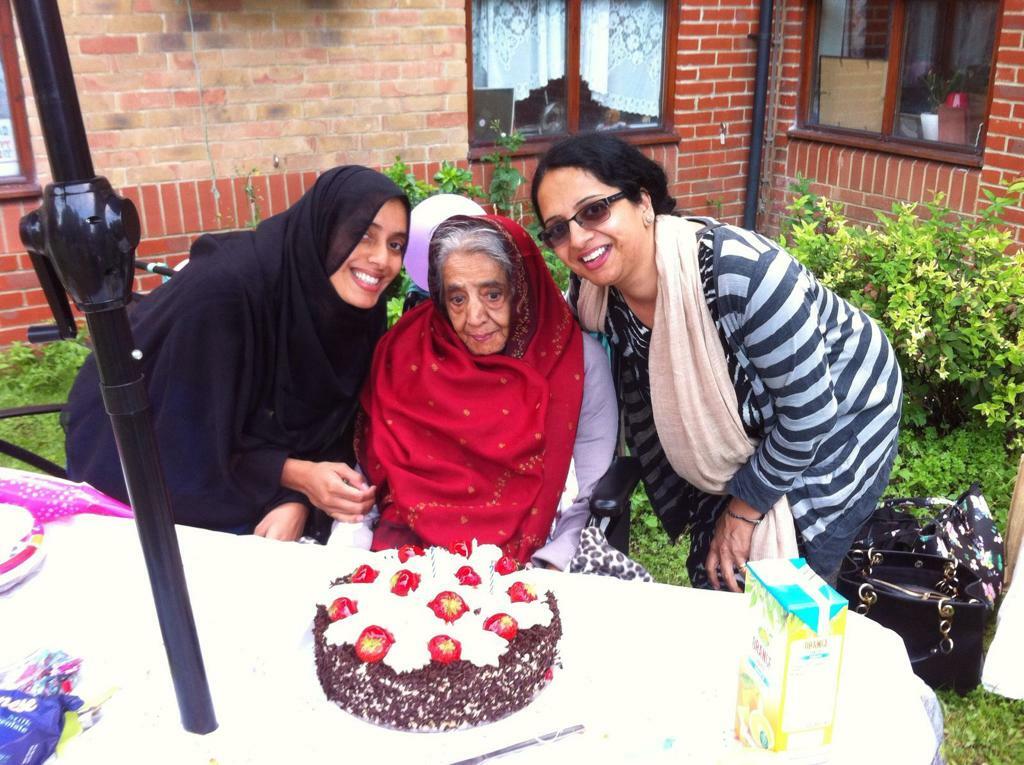
Banu Memon was diagnosed with motor neurone disease in 2015 and visited the day services at Pemberton Place so she could socialise and take part in activities with fellow patients. Here her grand-daughter Zenab Khan shares how Banu’s weekly visits improved her quality of life.
My grandmother was always known as Amma which means mother in Urdu. She was a loving, kind and happy soul who loved her family. She was an orthodox Muslim who was well respected by everyone in her community. She was also a feeder and you couldn’t leave Amma’s house without being fed with food and love.
We realised something was wrong when she started having falls and losing her balance but we were shocked when she was diagnosed with motor neurone disease as we’d never heard of the condition before.
Seeking the support of the Hospice
Her daughter, my aunt Amina, found out about Saint Francis Hospice and arranged to take her along to the day services at Pemberton Place. Going to the hospice in Havering-atte-Bower was a big step for Amma as she had never really mixed outside her community in Redbridge. She spoke Urdu and Gujarati and at first we were worried there would be a language barrier as she only spoke broken English but she absolutely loved it and never had any problems being understood.
She was such a social person and coming to the hospice gave her an opportunity to do something for herself. She had always been known as Amma but at the hospice she was Banu.
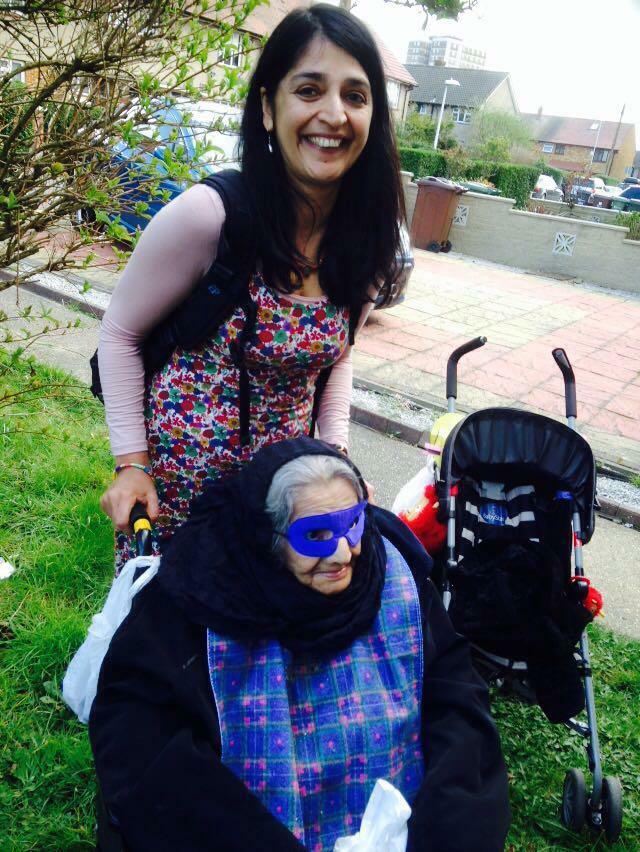
Amma with her daughter, Amina
After her first visit, she would come by herself. Amma would tell us how she sat in a circle and played games. She loved the hot tea and cheese sandwiches and she would bring biscuits in her bag to share.
She also spent time in the gardens and told us how green it was, about the beautiful flowers and the fish in the pond.
Before Amma came to the hospice, I thought a hospice was a place where you go to die but I realised she went to the hospice to live. The hospice had also provided equipment to help her manage as safely and independently at home for as long as she could.
As a family, we did our best for Amma
In the Asian culture, we believe it is our responsibility to care for our elders but as Amma’s condition deteriorated and she lost the use of her legs, her voice and even her ability to swallow, it became increasingly difficult to care for her. Amma would stay with me two days a week and as we didn’t have a downstairs bathroom, she had to be carried upstairs. This was quite distressing for us all.

Amma with a member of staff in Springfield Care Home
If it wasn’t for the hospice, I don’t think we would have had the confidence as a family to put Amma into Springfield Nursing Home in Newbury Park. We knew it was best for her and in the last nine months of her life, she was so happy.
She received the care she needed and her family was able to visit and spend quality time with her.
Support for me after Amma passed away
I spent more time with Amma in my childhood than I did with my mum. So yes, she was my grandmother but she was also like my mother.
After she passed away in 2016, I accessed counselling for 18 months which helped me process not only Amma’s passing away but helped with a lot of childhood trauma.
I used to come every Monday like clockwork. After those 18 months, I left as a better, much stronger and more confident person.
The most important thing I have left to say is thank you.
Find out about our services
Our services are here for people of all faiths and none. We are here to support anyone within the local community with a serious illness that cannot be treated or cured.


